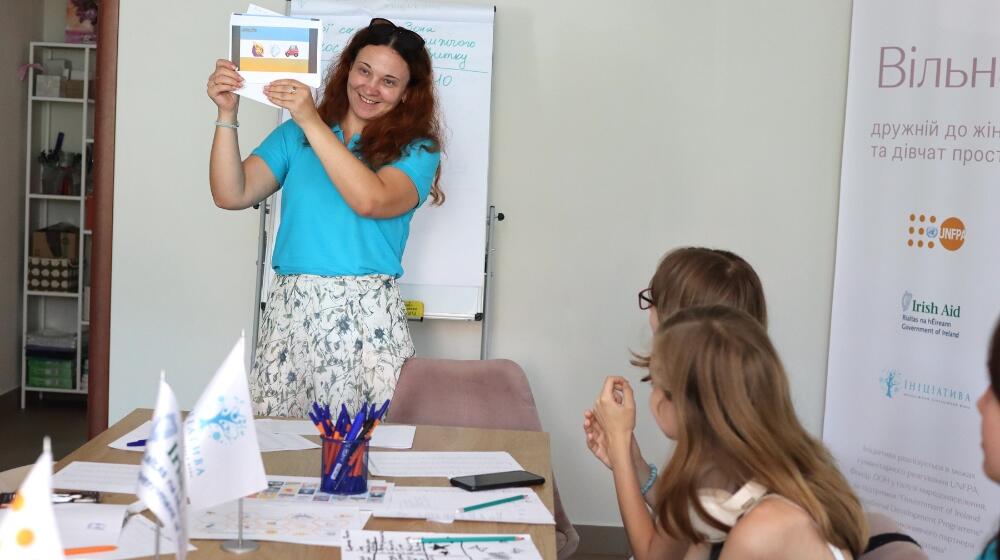Being a teenager means learning to understand yourself and adapting to the world around you every day. Being a teenager in a country at war means growing up in a reality that is difficult to accept, even for adults. At a time when young people naturally seek stability and security, war disrupts these foundations, leaving behind fear and uncertainty. On top of the usual challenges of adolescence, teenagers face constant air raids, power outages, and fears for their own lives and the lives of their loved ones.
Experts from 29 "Vilna" safe spaces for women and girls help teens cope with their anxieties and build trusting relationships with the world through closed support groups. This pilot program began in April this year in Boryspil.
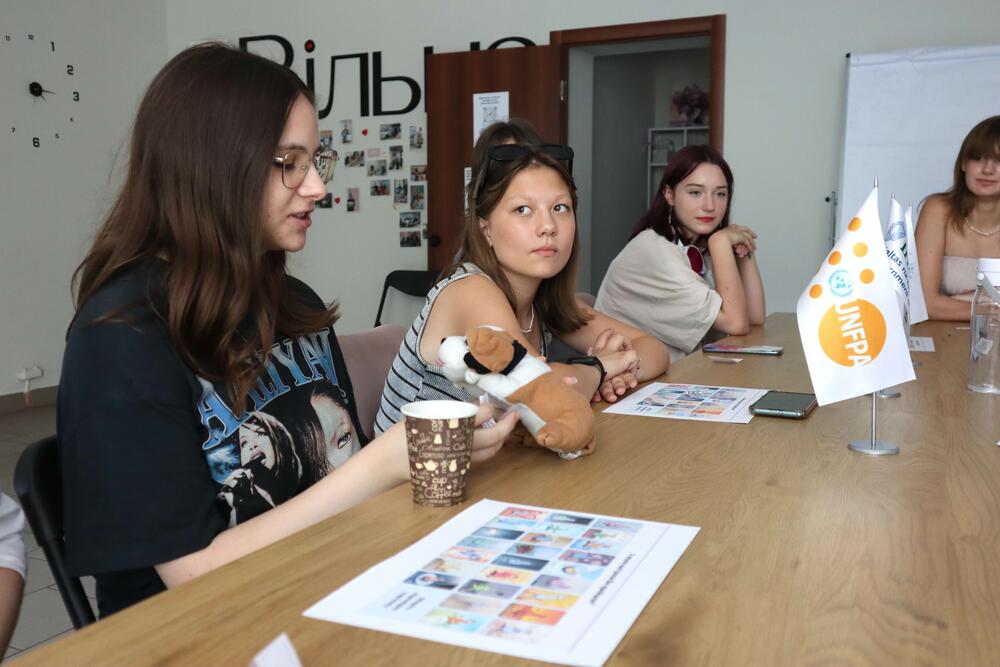
The group sessions, led by a psychologist and social worker, focus on developing communication skills, self-reflection, and a conscious approach to shaping the future. Each week, experts discuss psychological topics with the teens, offer practical exercises, and play games. If they wish, participants can also work individually with a psychologist. According to the specialists, the most common concerns for teenagers are relationships with parents and peers, self-discovery, fears around communication, loneliness, and exhaustion.
Fourteen-year-old Viktoria has been attending the club in Boryspil for only a few weeks but has already picked up several stress-management techniques from the experts. She says that mindfulness practices, which teach focusing on the present moment, have been the most beneficial.
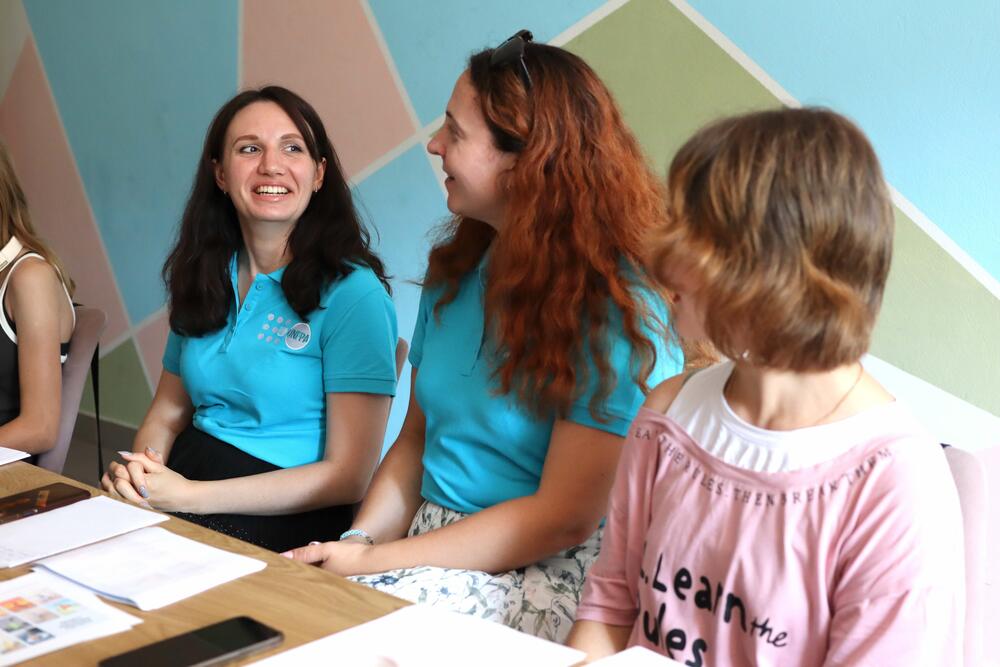
"For example, when you take a bath, you just feel the sensation, and it becomes pleasant and easier to handle," she explains.
Viktoria is also interested in other ways of working with emotions through physical activities, so she tries not to miss yoga, fitness, and art classes. Before February 2022, she couldn’t believe today’s reality was possible, seeing all the warnings about Russia’s invasion as a joke.
"I just didn’t understand what war is or how terrifying it could be," she says.
After migrating to Poland and Germany, her family returned to Ukraine. Viktoria and her sister have now adapted to the realities of war. During attacks, when she feels scared, she clings to her dog and ensures her hamsters are safely in the corridor, making sure even the smallest friends are protected.
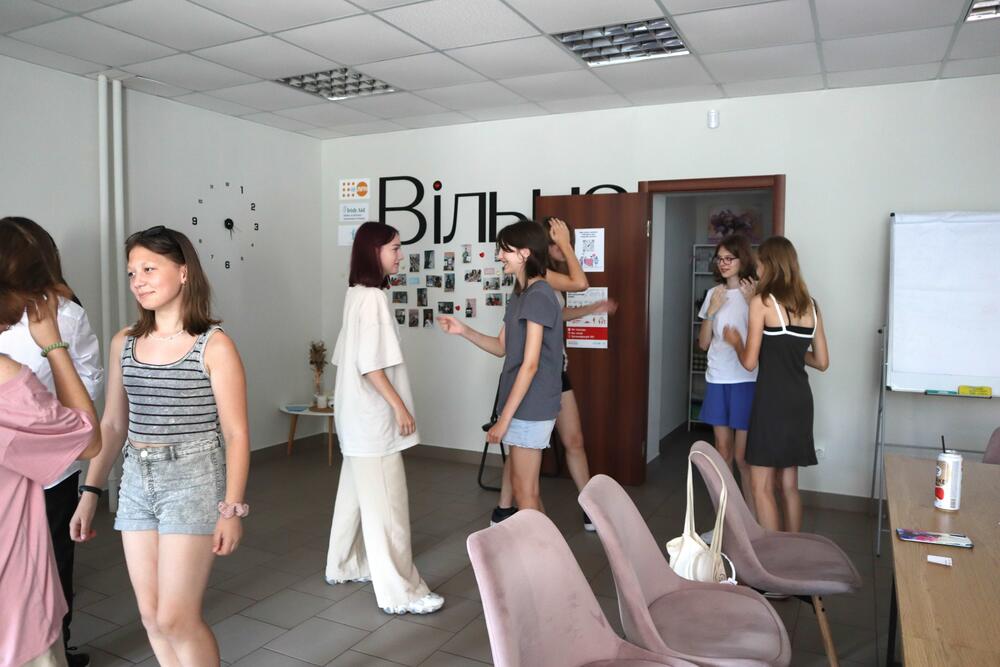
Classes fill me with positive energy for the days ahead.
Fourteen-year-old Yeva from Boryspil often experiences mood swings due to the war. In her free time, she loves to draw, read, and even write stories. However, sometimes it’s hard for her to even do the things she loves. As she explains, frequent power outages disrupt her schedule and lead to procrastination. During air raids at school, Yeva admits it can be frightening.
"It's scarier at school because it feels like an apocalyptic movie, with a huge crowd running through dark hallways. You could be trampled, or a missile could hit. It’s terrifying," she shares.
Time spent at "Vilna" gives her a chance to reset.
"Every session fills me with positive energy, and I’m happier for the next few days. I think that’s a huge help," Yeva says.
Thanks to the continuous new connections she makes at "Vilna," it has also become easier for her to start conversations with people outside the space.
"I’m used to new people showing up, and I need to find common ground with them," Yeva explains.
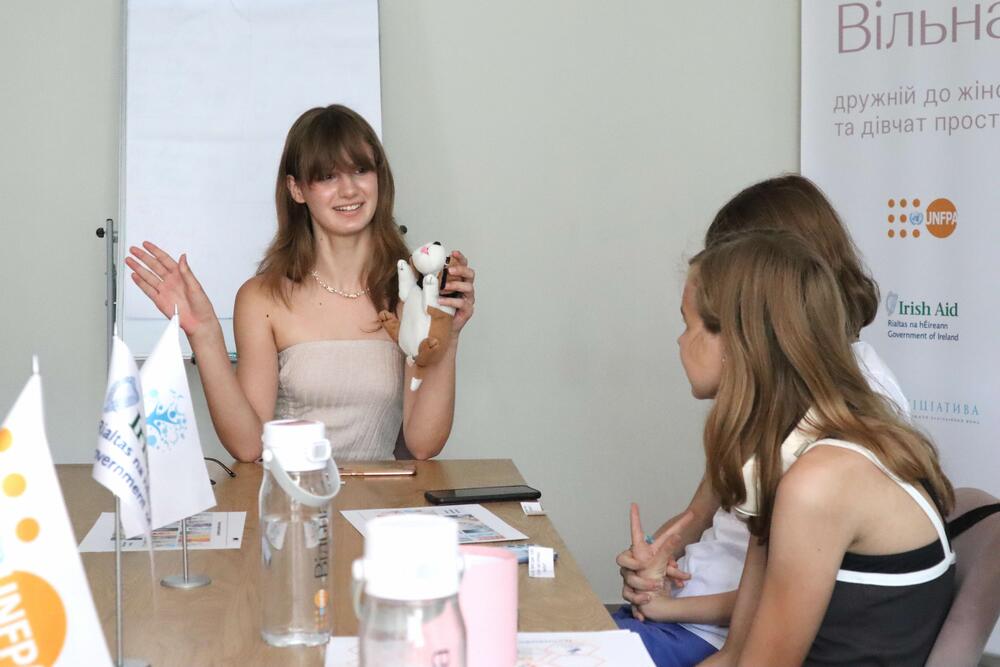
These sessions have boosted my self-esteem
Twelve-year-old Nadiya also talks about how "Vilna" has helped her resolve communication issues. Despite her young age, she has already had to start her life over when her family moved from Russian-occupied Donetsk to Boryspil in the Kyiv region. She admits that at first, it was hard to part with familiar surroundings, and she missed it a lot.
The start of Russia’s full-scale invasion once again threatened to disrupt Nadiya’s newly established life. However, as she says, she has learned to cope with anxiety by sitting in a "safety corner" during attacks. In her free time, she plays the synthesizer and ukulele, both of which she learned independently, and she has been attending "Vilna" events for a year. According to Nadiya, she has become much more confident during this time.
"These sessions have boosted my self-esteem. I don’t feel like an outsider anymore and can always fit in with the group. I even brought my friend here, and we played Mafia — it was so much fun," she shares.
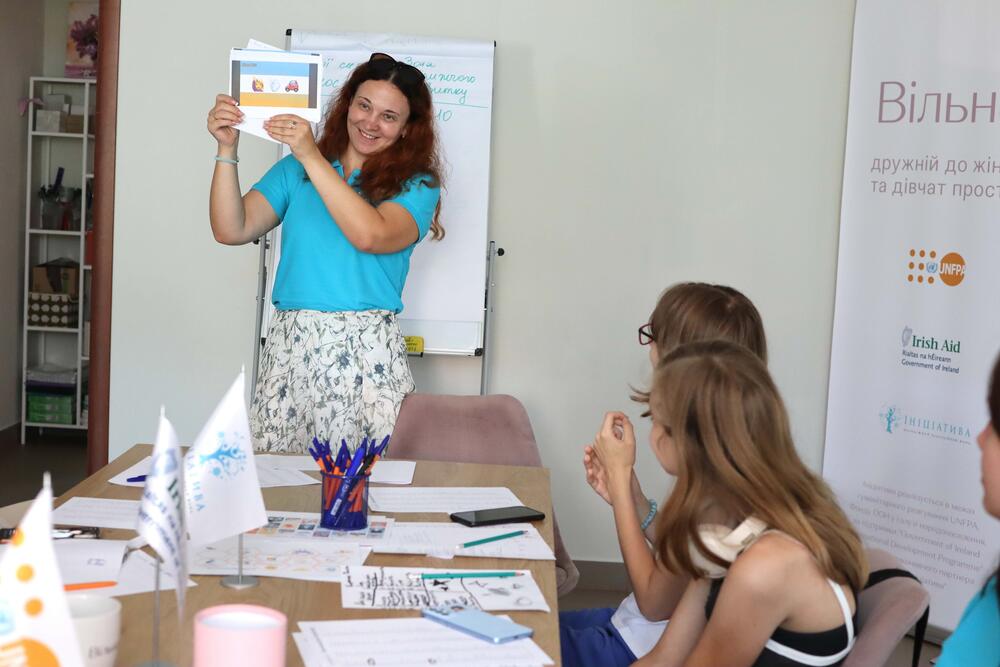
Thirteen-year-old Kateryna from the Kharkiv region has also faced adult challenges due to Russia’s aggression. Since the start of the full-scale war, her family has had to move twice — first to Poltava and then to Boryspil. Initially, it was difficult for Kateryna to make friends in a new place, but she managed. Her experience in the "Vilna" space, which she has attended for a year and a half, helped her.
"I met all the girls here at different events, and now we hang out together," the teenager says.
Art is Kateryna's escape from the harsh realities of war. She loves to draw, read, and write and is passionate about makeup and cosplay. Thanks to her involvement in "Vilna," Kateryna feels much more confident and, despite the war, is not afraid to dream. At her young age, she already knows she wants to pursue a future in art — whether as a writer or designer — so she can continue bringing beauty and light to the world, even in dark times.
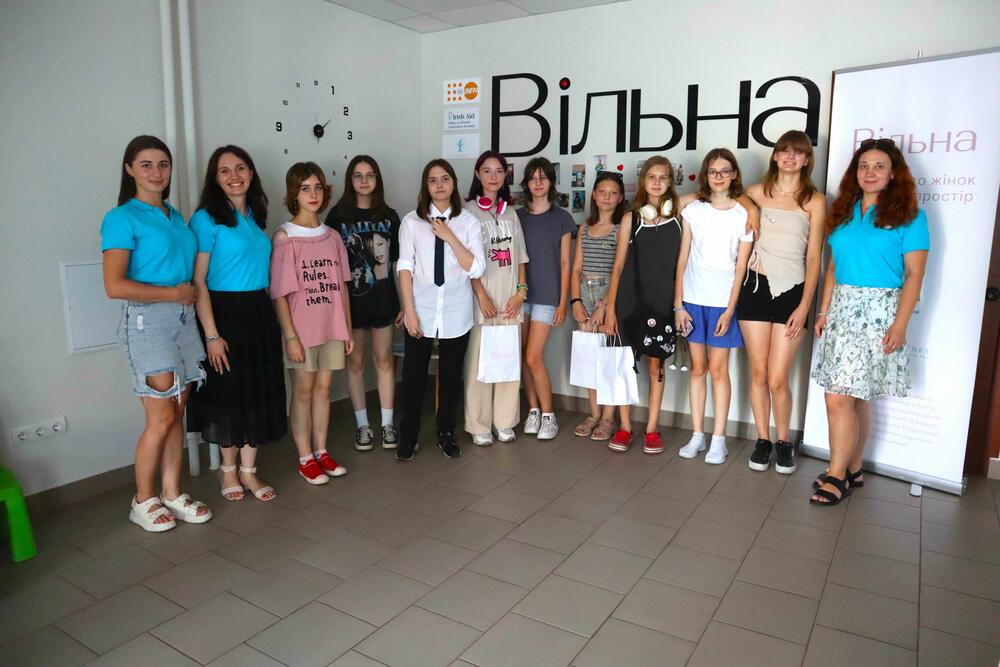
This initiative is implemented by UNFPA, the United Nations Population Fund in Ukraine, with support from USAID's Bureau for Humanitarian Assistance, the Government of Ireland's International Development Program, and the governments of the United Kingdom, Canada, Denmark, the Ukraine Humanitarian Fund (UHF), and the Central Emergency Response Fund (CERF).

